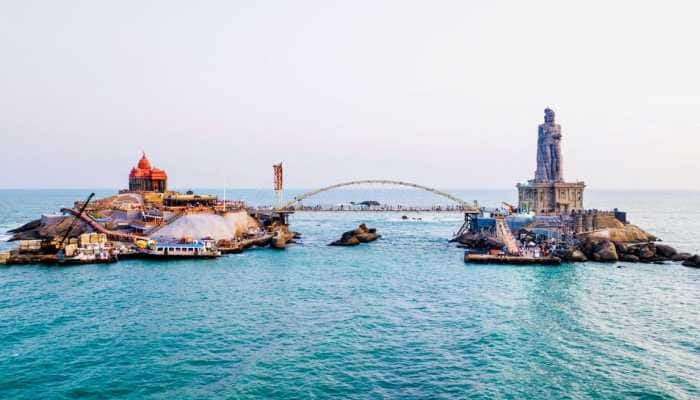Will negotiate with other signatories, says Iran after US walks out of 'one-sided' nuclear deal
Iranian President Hassan Rouhani has said that Tehran will negotiate with the other signatories of a multinational nuclear deal, bypassing Washington.
Trending Photos
)
ANKARA: Iranian President Hassan Rouhani has said that Tehran will negotiate with the other signatories of a multinational nuclear deal, bypassing Washington, after the United States pulled out of the deal also known as the Joint Comprehensive Plan of Action (JCPOA).
Calling the US withdrawal from the landmark pact "unacceptable", the Iranian leader said that the deal will remain in place if Tehran achieves the deal's goals in cooperation with other members of the historic agreement.
Rouhani also attacked President Donald Trump's decision and said the move has undermined its commitment to an international treaty.
The Iranian Foreign Ministry will negotiate with the European countries, China and Russia in coming weeks, Rouhani said, according to according to Al Jazeera.
The Iranian President further hit out at the US saying it has done nothing except put empty signatures on pieces of paper.
The reactions from the Iranian leader came shortly after the United States President Donald Trump announced the US withdrawal from the JCPOA or Iran nuclear deal on Tuesday.
President Trump said that he will sign a presidential memorandum to begin reinstating US nuclear sanctions on Iran.
However, the US pullout from the Iran nuclear deal has evoked sharp reactions from the world community.
France's Defence Minister Florence Parly warned that challenging the 2015 Iran nuclear deal risks escalating tensions in "very eruptive region" and called for more efforts to improve the agreement.
She was quoted as saying by the RTL Radio that the agreement had successfully suspended the Iranian nuclear power programme, even if it was "not perfect".
"It's not the best of agreements. (But,) it is a factor of peace and stabilization in a very eruptive region," Parly added.
"Any escalation that concerns Iran can only be a factor of aggravation of a situation already very tense," the Minister was cited as saying by Xinhua news agency.
"It will be necessary to constantly continue to plead for the improvement of this agreement, whether the US is there or not," she said.
Meanwhile, reiterating the necessity to maintain the 2015 nuclear deal, French President Emmanuel Macron suggested opening new global talks on Iran post-2025 nuclear programme that would include its ballistic missile programme and its regional influence.
The Iran deal, also known as Joint Comprehensive Plan of Action (JCPOA), is an international agreement reached on July 14, 2015, between Iran and six world countries - China, France, Russia, Britain, the US and Germany, plus the EU.
Iran, in a pact with the world powers, had agreed to halt its nuclear programme in return for an easing of economic sanctions on Tehran.
However, the US has repeatedly threatened to reimpose sanctions on Iran and decertify the JCPOA.
(With Agency inputs)
Stay informed on all the latest news, real-time breaking news updates, and follow all the important headlines in india news and world News on Zee News.
Live Tv







)
)
)
)
)
)
)
)
)
)
